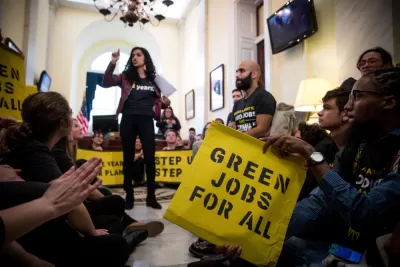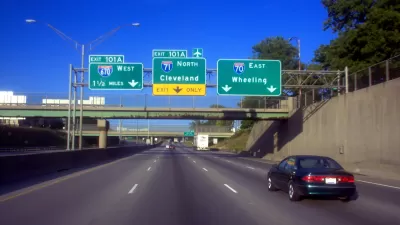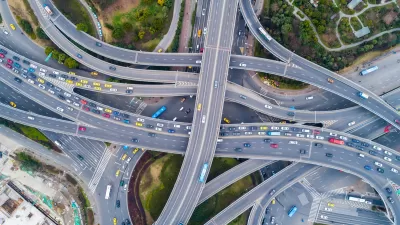Congressional Democrats hope transportation infrastructure can be a winning political point during a campaign year following the impeachment of President Donald Trump.

"House Democrats on Wednesday unveiled a $760 billion framework to fund infrastructure investments over five years in an effort to take their first steps on a top campaign priority," reports Cristina Marcos.
The framework falls short of a legislative action, according to Marcos, but the proposal is intended to set a "marker for a top legislative priority for the 2020 campaign…." Details remaining to work out, for instance, include how to fund the investments targeted in the framework.
"The Democrats' framework proposes $329 billion for roads and bridges, $55 billion for passenger rail, $30 billion for airport investments, $50.5 billion for wastewater infrastructure, $86 billion for expanding broadband access for rural areas, and $12 billion for a "next-generation" 911 system for emergency calls," according to Marcos.
A separate article by Tanya Snyder highlights the climate theme found in the proposal: House Transportation Chairman Peter DeFazio (D-Ore.) says the plan will be a radical departure from highway-focused transportation bills and will put clean energy and climate 'resilience' at the center."
"The climate plan, according to DeFazio, will include everything from making federal buildings carbon-neutral to transitioning to renewable fuels for aviation. He also wants to improve rail and transit options 'as a more efficient way to move passengers than short-haul airlines and automobiles' and use more climate-friendly building materials, like concrete with coal ash that 'actually absorbs carbon.'"
Snyder also contrasts this effort by Democrats to set a tone for the campaign to a five-year transportation bill reauthorization already working its way through the U.S. Senate. That bill mentions climate in the title—a first for a transportation bill reauthorization.
FULL STORY: House Democrats unveil $760B infrastructure plan

Planetizen Federal Action Tracker
A weekly monitor of how Trump’s orders and actions are impacting planners and planning in America.

San Francisco's School District Spent $105M To Build Affordable Housing for Teachers — And That's Just the Beginning
SFUSD joins a growing list of school districts using their land holdings to address housing affordability challenges faced by their own employees.

The Tiny, Adorable $7,000 Car Turning Japan Onto EVs
The single seat Mibot charges from a regular plug as quickly as an iPad, and is about half the price of an average EV.

As Trump Phases Out FEMA, Is It Time to Flee the Floodplains?
With less federal funding available for disaster relief efforts, the need to relocate at-risk communities is more urgent than ever.

With Protected Lanes, 460% More People Commute by Bike
For those needing more ammo, more data proving what we already knew is here.

In More Metros Than You’d Think, Suburbs are Now More Expensive Than the City
If you're moving to the burbs to save on square footage, data shows you should think again.
Urban Design for Planners 1: Software Tools
This six-course series explores essential urban design concepts using open source software and equips planners with the tools they need to participate fully in the urban design process.
Planning for Universal Design
Learn the tools for implementing Universal Design in planning regulations.
Smith Gee Studio
City of Charlotte
City of Camden Redevelopment Agency
City of Astoria
Transportation Research & Education Center (TREC) at Portland State University
US High Speed Rail Association
City of Camden Redevelopment Agency
Municipality of Princeton (NJ)





























